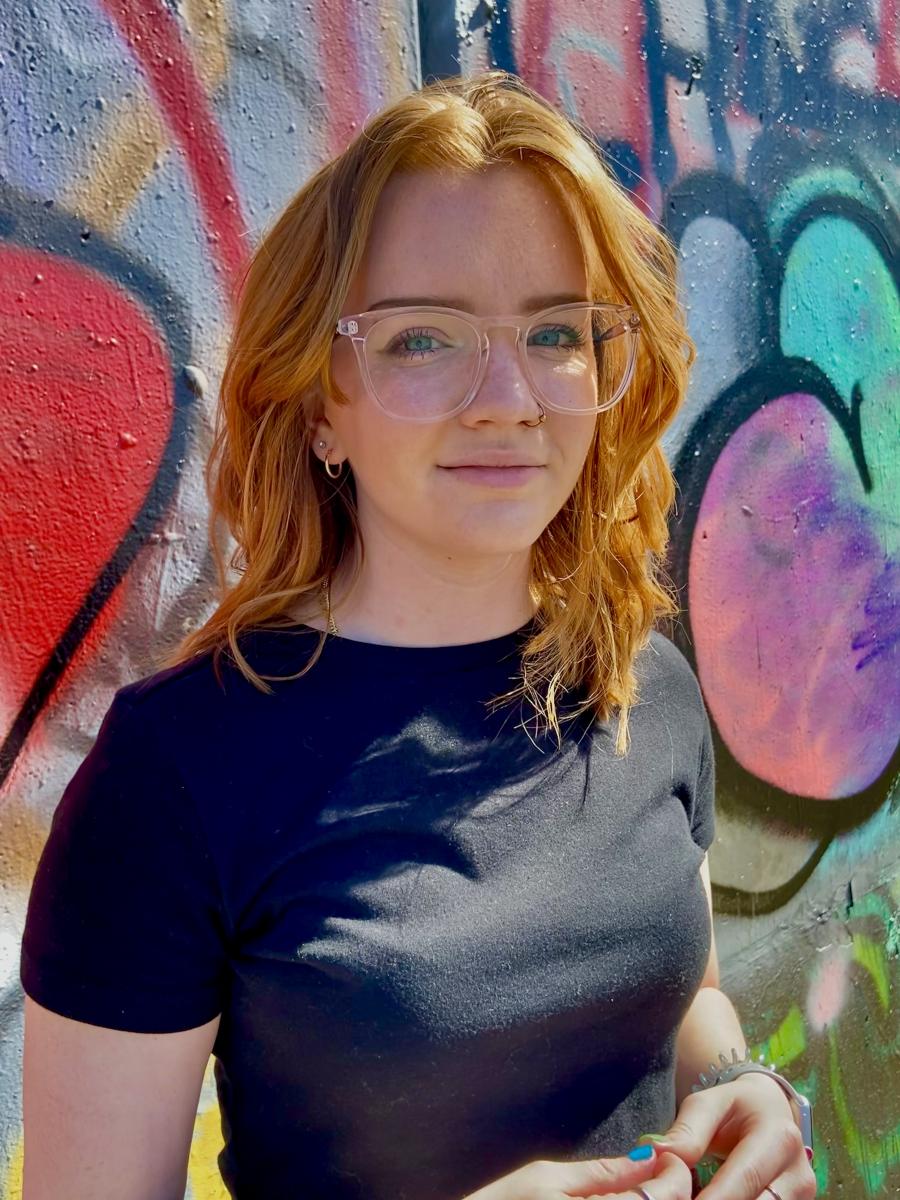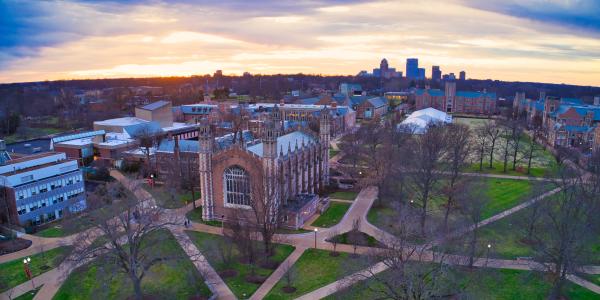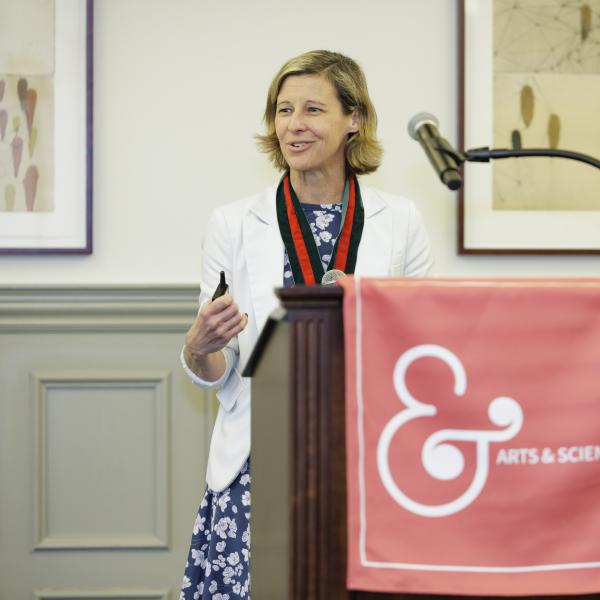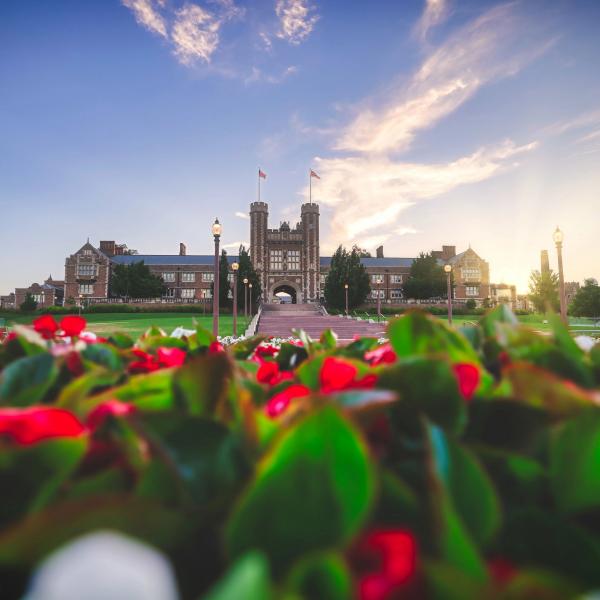Ahead of this year's Major-Minor Fair, sophomore Gracie Hime writes about how she discovered her course of study in Arts & Sciences.
“Thought is the thought of thought,” – James Joyce, Ulysses.

Thank you, Joyce, for this brain-rotting sentence; now I understand cognition, the brain, philosophy, and psychology even less. I’m sure he patted himself on the back one too many times after coming up with this *upturned pinky* stupefying utterance.
While I slander this circular and seemingly philosophical holy grail of a sentence, I can’t help but condense my journey of choosing my major into this simple yet very complex phrase.
Although I am only a sophomore, I feel like my first year at Washington University both solidified my interests and revealed to me just how little I knew about those topics. After graduating high school, I knew I wanted to pursue a degree in the liberal arts or humanities; I especially had a passion for philosophy and politics. I took a broad variety of classes in Arts & Sciences my first year. Topics like cognitive science, political theory, and literature allowed me to find new and personally-undiscovered areas of study – topics I hadn’t even heard of in high school. Sure, I knew cognitive science was the study of the neuro-mechanical aspect of the mind and brain, but that was about it. Little did I know that it also relates to computer science and linguistics. The unexpected material left me in a panic at first. But, to my surprise, I became obsessed with cognitive neuroscience theories relating back to coding and physical symbol systems.
After taking my first two cognitive science classes this past semester, I knew this was the direction for me. The Philosophy-Neuroscience-Psychology program allowed me to combine my passion of politics, philosophy, and psychology into one interdisciplinary and intersectional study. The PNP approach is more than just a physiological perspective of the mind. Instead, it looks at the correspondence between the mind with the physical world, internal thoughts, neurons, social interactions, and more.
Like many Arts & Sciences students, I felt very inclined my first year to introduce the ampersand to my life, so I decided to also pursue a degree in political science. Rather than being a completely different area of study than PNP, it added another dimension. PNP may already seem excessive because of the many topics referred to in the acronym, but these different areas of study rely on each other to get a holistic approach to the mind as a powerful and complex concept. Political science adds a dimension of cause-and-effect in terms of social interaction, specifically political theory. For example, conversations about power cannot be left out of psychology or philosophy. Some of the most famous and praised philosophers don’t consider the power they have over another person despite them writing about influence. In any area of study, it takes a multifaceted approach to understand a concept most accurately.
I chose my majors because I crave this discussion of the human mind and how it plays out in the world. There is no right answer, and I would go as far to say that we will never find any objective answer, yet that is the thrill of PNP and political science. Though to some this may seem unrewarding, I take it as a journey of lifelong learning, and that’s what stimulates my mind. So, to Joyce’s credit, I suppose thinking about thinking by thinking is exactly how I want to take on the world.
Are you still on the path to finding your major? Learn more about areas of study in Arts & Sciences at the fall 2021 Major-Minor Fair, hosted Oct. 25–28 by the College of Arts & Sciences.




